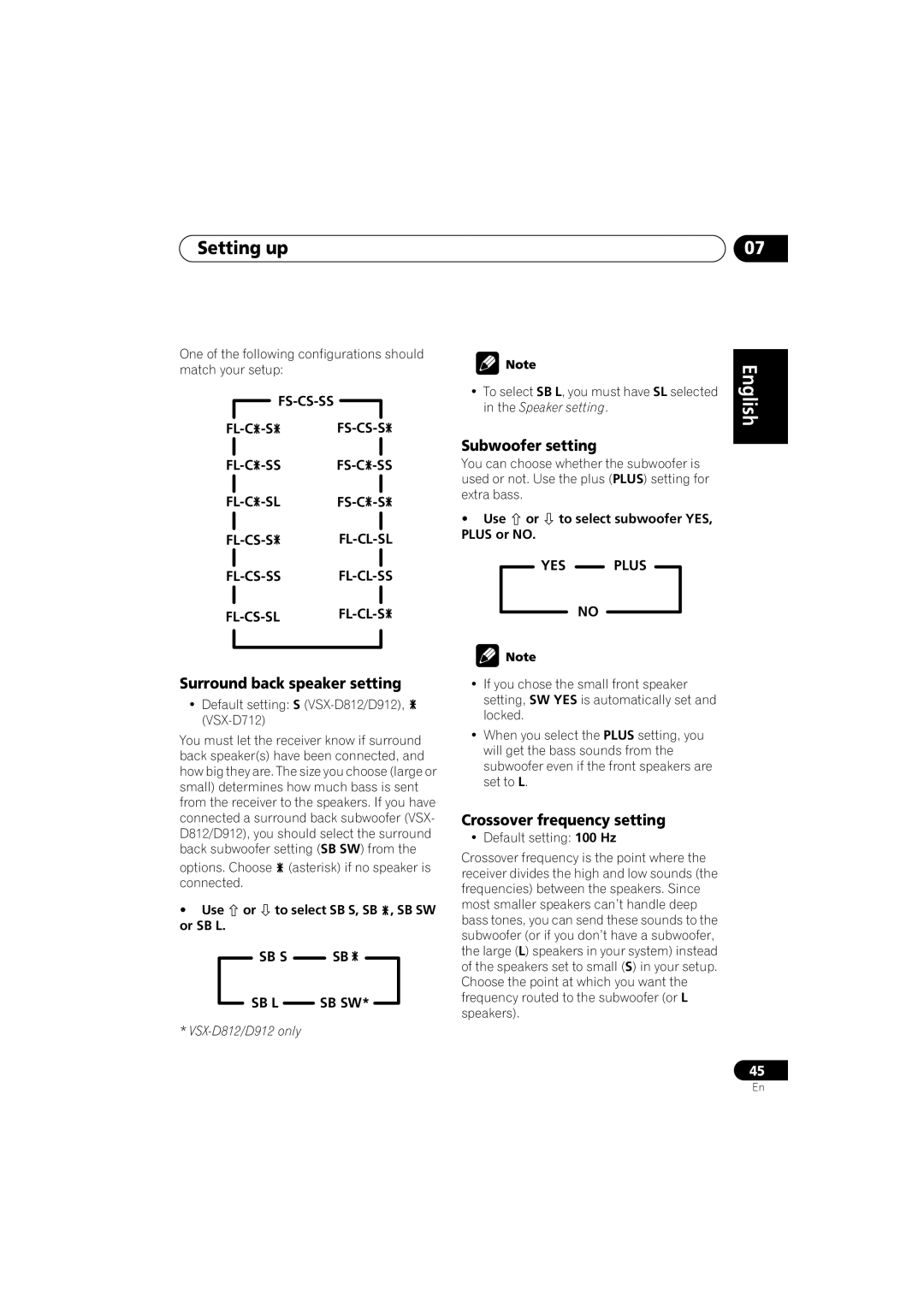
Setting up
07
One of the following configurations should match your setup:
![]()
![]()
|
|
|
|
|
| ||
|
|
|
|
|
| ||
|
|
|
|
|
| ||
|
|
|
|
|
| ||
|
|
|
|
|
|
|
|
|
|
|
|
•To select SB L, you must have SL selected in the Speaker setting.
Subwoofer setting
You can choose whether the subwoofer is used or not. Use the plus (PLUS) setting for extra bass.
• Use or to select subwoofer YES, PLUS or NO.
YES PLUS
NO
English Italiano Français
Surround back speaker setting
•Default setting: S ![]()
You must let the receiver know if surround back speaker(s) have been connected, and how big they are. The size you choose (large or small) determines how much bass is sent from the receiver to the speakers. If you have connected a surround back subwoofer (VSX- D812/D912), you should select the surround back subwoofer setting (SB SW) from the options. Choose ![]() (asterisk) if no speaker is connected.
(asterisk) if no speaker is connected.
• Use or to select SB S, SB ![]() , SB SW or SB L.
, SB SW or SB L.
|
|
| SB S |
|
| SB |
|
|
| |
|
|
|
|
|
|
| ||||
|
| SB L |
|
| SB SW* |
|
| |||
|
|
|
|
| ||||||
* |
|
|
|
|
| |||||
•If you chose the small front speaker setting, SW YES is automatically set and locked.
•When you select the PLUS setting, you will get the bass sounds from the subwoofer even if the front speakers are set to L.
Crossover frequency setting
• Default setting: 100 Hz
Crossover frequency is the point where the receiver divides the high and low sounds (the frequencies) between the speakers. Since most smaller speakers can’t handle deep bass tones, you can send these sounds to the subwoofer (or if you don’t have a subwoofer, the large (L) speakers in your system) instead of the speakers set to small (S) in your setup. Choose the point at which you want the frequency routed to the subwoofer (or L speakers).
Deutsch Nederlands Español
45
En
